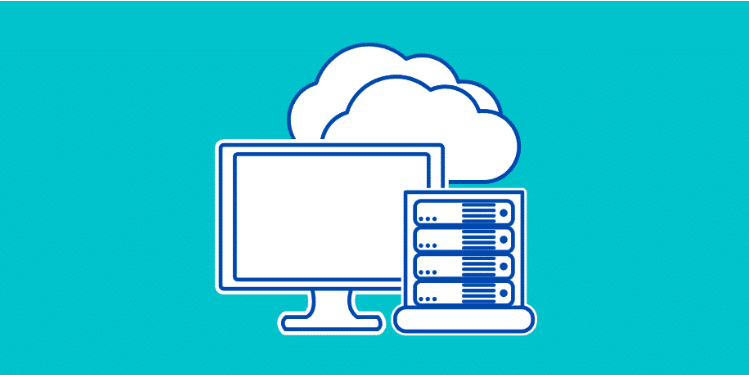Why Hosting Services Matter for Your Website’s Success

Introduction: Importance of Hosting Services for Websites
In the digital age, having an online presence is critical for businesses and individuals alike. Whether you’re running an e-commerce store, a blog, or a corporate website, one crucial element that directly affects your success is your website hosting service. Hosting services act as the foundation for your website’s performance, security, and scalability. Without the right hosting, even the most beautifully designed website could face downtime, slow performance, or security vulnerabilities that may harm your reputation and business.
Understanding Website Hosting
Before diving deeper into the factors that make hosting services crucial, it’s important to understand what website hosting is. Simply put, website hosting is a service that stores your website files on a server and makes them accessible on the internet. Hosting allows your website to be live, visible, and functional. Without hosting https://hostkey.com/, your website wouldn’t exist on the web.
Types of Hosting Services
There are several types of hosting services, and each one comes with its own set of advantages and limitations:
- Shared Hosting: This is the most basic and affordable type of hosting where multiple websites share the same server resources.
- VPS Hosting: Virtual Private Server hosting offers more power and control by partitioning a physical server into multiple virtual servers.
- Dedicated Hosting: This type of hosting gives you an entire physical server dedicated solely to your website, ensuring high performance and flexibility.
- Cloud Hosting: Cloud hosting offers scalability and flexibility by distributing your website’s data across multiple servers, ensuring no downtime even if one server fails.
Key Factors to Consider When Choosing Hosting Services
When choosing hosting services, you must evaluate several factors to ensure that they align with your website’s needs:
- Bandwidth: This refers to the amount of data that can be transferred from your server to users. A higher bandwidth allows more visitors to access your website without slowing it down.
- Storage: Ensure your hosting plan offers adequate storage for your website’s content, databases, and other files.
- Scalability: As your website grows, you may need to upgrade your hosting plan. Opting for a hosting service that offers scalability is key to ensuring that your website can handle increased traffic.
Speed and Performance: A Direct Impact on User Experience
Website speed plays a critical role in user satisfaction and conversion rates. Studies show that even a 1-second delay in page load time can decrease conversions by 7%. Your hosting provider’s performance will directly impact how quickly your website loads. Opting for reliable and high-performing hosting services will ensure a smooth user experience, which is essential for retaining visitors and improving SEO rankings.
Security and Hosting: Safeguarding Your Site
Security is another key concern when it comes to hosting. A secure hosting provider will offer various protections like SSL certificates, regular backups, and firewalls. Without robust security, your website could be vulnerable to attacks such as hacking, data breaches, or malware infections, all of which can severely damage your reputation and business.
The Role of Hosting in SEO
Did you know that your hosting provider can affect your website’s SEO ranking? Google and other search engines take website speed, uptime, and security into account when ranking websites. Websites hosted on slower servers or those that experience frequent downtime will have a hard time ranking well. A reliable hosting service that offers fast loading times and 99.9% uptime will not only enhance user experience but will also give you an SEO advantage.
Uptime and Reliability: Ensuring Your Website Stays Online
Uptime refers to the percentage of time your website is accessible and online. Hosting services with a high uptime guarantee, like 99.9%, ensure that your website is almost always available. This reliability is crucial for maintaining user trust and preventing loss of revenue, especially for e-commerce sites. Even a few hours of downtime can lead to a negative impact on both user trust and SEO rankings.
Customer Support and Technical Assistance
Having reliable customer support is essential, particularly if you run a business that relies heavily on your website. Hosting providers that offer 24/7 technical support will help resolve any issues quickly, minimizing potential downtime. Whether you face server problems, security breaches, or need assistance with software, excellent customer support will ensure that your website remains up and running smoothly.
Scalability: Growing with Your Website
As your website grows in terms of traffic and content, you will need a hosting solution that can grow with it. Scalable hosting services allow you to upgrade your hosting plan as your website demands more resources. This flexibility is important for businesses planning to expand without the need to migrate to a different provider or hosting solution.
Cost-Effectiveness of Hosting Solutions
While it’s tempting to opt for the cheapest hosting plan available, it’s crucial to find a balance between price and performance. You may need to invest a bit more in a premium hosting service to ensure that your website’s needs are met, including fast load times, excellent customer support, and security features. The return on investment from choosing a reliable hosting provider can be substantial in terms of website success, user satisfaction, and business growth.
Choosing the Right Hosting Provider for Your Needs
Selecting the right hosting provider involves assessing your website’s specific needs. Whether you need a shared, VPS, dedicated, or cloud-based hosting solution depends on the type of website you have, your budget, and your scalability requirements. Researching different providers, reading reviews, and understanding your needs will help you make an informed decision.
Common Mistakes to Avoid When Selecting Hosting Services
- Focusing solely on price rather than performance.
- Choosing a hosting provider without considering scalability.
- Ignoring the importance of uptime and security.
- Failing to review the customer support options available.
The Future of Hosting: Trends You Should Know
The hosting industry is evolving with innovations in artificial intelligence, cloud computing, and serverless technologies. Staying up to date with these trends can help you future-proof your website hosting and ensure long-term success.
Conclusion: Why Hosting Services Are Essential
In conclusion, hosting services are a critical element of your website’s overall success. From performance and security to scalability and SEO, your choice of hosting provider can make or break your website. By carefully selecting a hosting service that meets your website’s unique needs, you can ensure smooth operation, a great user experience, and better business outcomes.
FAQs
1. What is the difference between shared and dedicated hosting? Shared hosting involves sharing server resources with other websites, making it affordable but less powerful. Dedicated hosting provides an entire server exclusively for your website, offering better performance and security.
2. How do I know if my hosting is affecting my website’s performance? You can check your website’s speed using tools like Google PageSpeed Insights or GTmetrix. Slow loading times or frequent downtimes are indicators that you might need to upgrade your hosting.
3. Can my hosting provider affect my SEO ranking? Yes, hosting plays a role in SEO. Factors like website speed, uptime, and security all contribute to how search engines rank your website.
4. What’s the best hosting service for a growing e-commerce website? For e-commerce websites that expect growth, cloud hosting or VPS hosting is often the best option due to its scalability and reliability.
5. How often should I back up my website? It’s recommended to back up your website regularly, especially before making significant changes or updates. Some hosting providers offer automated daily backups.
6. Can I change hosting providers later? Yes, you can migrate your website to a new hosting provider if needed. However, it’s important to carefully plan the migration process to avoid downtime.







